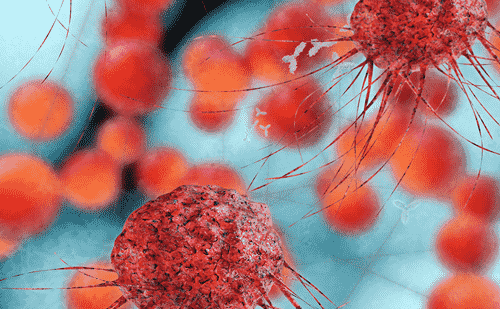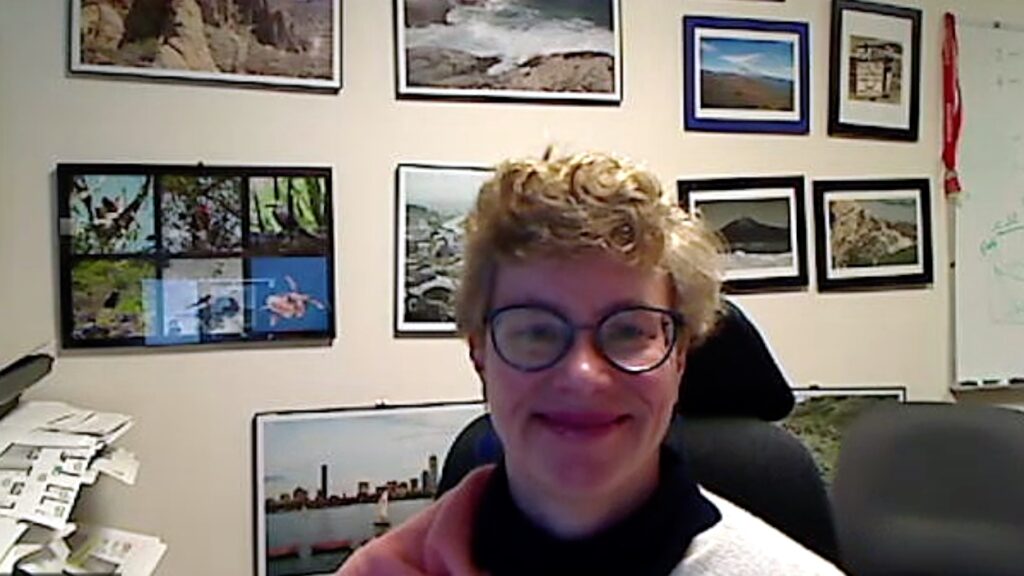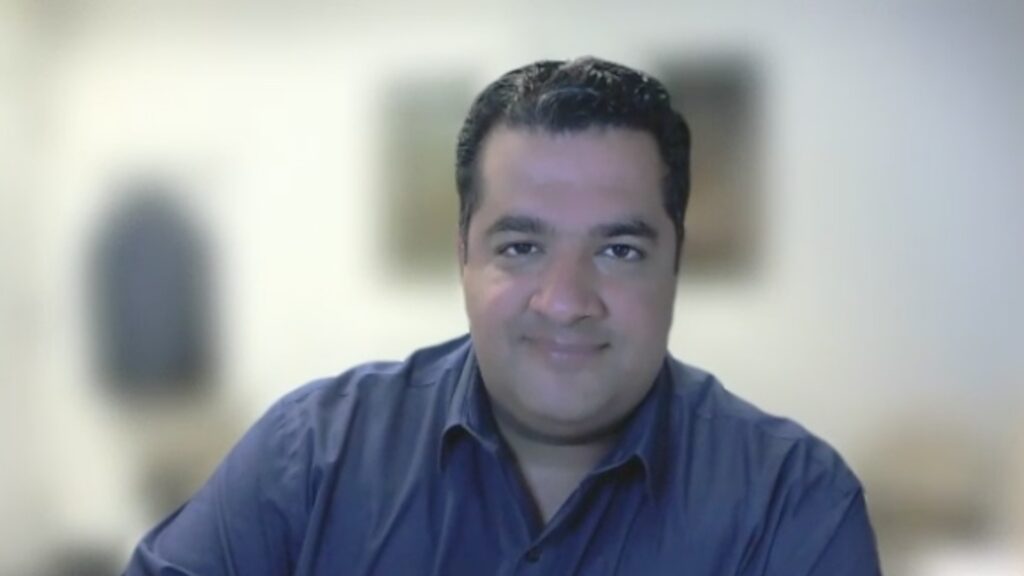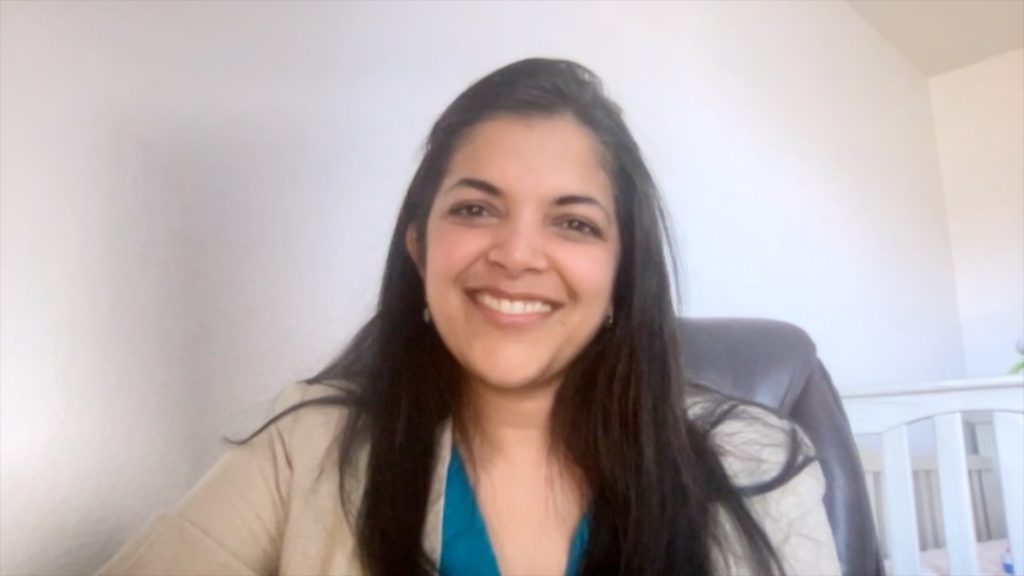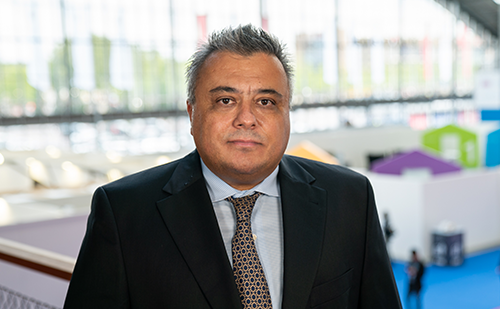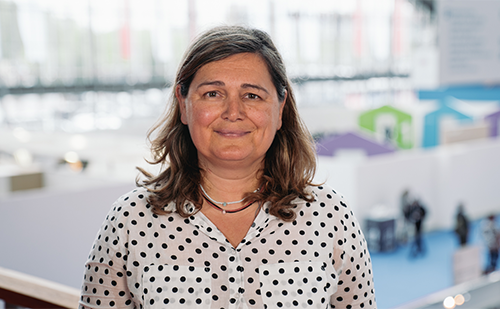Insights into the RELEVANCE study presented at the 23rd Congress of the European Haematology Association, 14–17 June 2018, Stockholm, Sweden
Follicular lymphoma (FL) is the most common indolent non-Hodgkin lymphoma and accounts for 15–30% of all lymphomas.1 The disease is characterised by recurrent relapses and remissions that become progressively shorter. The standard first-line treatment option for FL has been rituximab plus chemotherapy (R-chemo) followed by rituximab maintenance therapy, as well as more intensive treatments, such as high-dose therapy plus stem cell transplantation. However, almost all patients will relapse over time.2 Furthermore, these regimens are based on alkylating agents and other nonspecific cytotoxic drugs, and are associated with acute and long-term adverse effects. Avoiding the toxic effects of chemotherapy is desirable in a disease with a relatively indolent course, where maintaining quality of life is an important consideration, particularly in elderly individuals.
Lenalidomide (Revlamid®, Celgene, Summit, NJ, US), an immunomodulatory drug with activity in lymphoid malignancies, and antiproliferative effects, has shown beneficial effects in previously untreated patients with FL and, in two phase II studies, has been found to be even more effective in combination with rituximab (known as the R2 regimen), with no increased toxicity than lenalidomide alone.3,4 This regimen has been recently compared with standard chemoimmunotherapy in a global, randomised, open-label phase III trial (RELEVANCE, NCT01650701) in untreated patients. Results from RELEVANCE were presented at the at the 23rd Congress of the European Haematology Association (EHA), which was held on 14–17 June 2018, Stockholm, Sweden.5 The study recruited patients with grade 1–3a FL who were considered to need systemic therapy according to Groupe d’Etude des Lymphomes Folliculaires criteria. A total of 1,030 patients with high tumour burden were randomly assigned to R2 (n=513) or R-chemo (n=517). In the R2 arm, lenalidomide 20 mg/day was administered during cycles 1–6 on days 2–22/28, then continued in responders at 10 mg/day for 18 cycles. Rituximab was administered 375 mg/m2 weekly in cycle 1, day 1 in cycles 2–6, and continued in responders for 12 additional cycles. R-chemo was given per investigator’s choice of standard R-CHOP (rituximab plus cyclophosphamide, doxorubicin, vincristine, and prednisone), R-bendamustine (R-B), or R-CVP (rituximab plus cyclophosphamide, vincristine and prednisone), followed by 12 cycles of rituximab.
At a median follow-up of 37.9 months, the R2 treatment arm did not achieve superiority in the primary endpoints of complete response or unconfirmed complete response (CR/Cru) at 120 weeks (48% versus 53%, p=0.13). The 3-year overall survival was 94% in both treatment arms. The 3-year progression-free survival rates was also similar in both groups (77% versus 78% in R2 versus R-chemo groups, respectively).
The major difference between the two treatment arms was, as expected, in the toxicity profiles, with lower rates of any grade fatigue (23% versus 29%), nausea (20% versus 42%), peripheral neuropathy (11% versus 22%), vomiting (7% versus 19%), stomatitis (3% versus 7%), alopecia (1% versus 9%), higher rates of cutaneous reactions (43% versus 24%), diarrhoea (37% versus 19%), and tumour flare reaction (6% versus 0.2%) associated with R2 compared with R-chemo. The rates of thromboembolic events were similar in both groups. The R-chemo group also reported higher grade 3/4 lab neutropenia (34% versus 50%) and febrile neutropenia (2% versus 6%), whereas R2 was associated with higher grade 3/4 cutaneous reactions (7% versus 1%). Adverse events (AEs) led to treatment discontinuation in 11% of R2 and 3% of R-chemo patients. Grade 5 AEs were 1% for both arms, and secondary primary malignancies (SPMs) were reported in 7% (n=38) R2 and 9% (n=48) R-chemo patients (5% invasive SPMs for both).
RELEVANCE was the first randomised phase III trial comparing the chemotherapy-free regimen R2 to the standard R-chemo followed by rituximab maintenance in previously untreated patients with FL. Unfortunately, the study was designed as a superiority trial rather than a noninferiority trial, and so the findings were disappointing. Nevertheless, these findings demonstrate that R2 is an effective frontline treatment for patients with FL, with a more acceptable toxicity profile than the current standard of care, and represents an important first step in establishing chemotherapy-free regimens for haematological malignancies.
The AUGMENT study (NCT01938001) is currently assessing R2 versus placebo plus rituximab. The R2 regimen has demonstrated efficacy and safety in small studies of relapsed and refractory FL patients,6,7 as well as the phase 3b MAGNIFY trial (NCT01996865), which did not have a comparator arm.8 The results of AUGMENT, which are expected in 2018, are eagerly anticipated. Other chemotherapy-free options, including new anti-CD20 antibodies, antibodies targeting other cell surface antigens, bi-specific antibodies, immunomodulation, idiotype vaccine and other targeted therapies are currently being investigated.9 It is worth remembering, however, that, chemotherapy-free regimens might not mean toxicity-free treatment and regular monitoring of early and late toxicities will be needed with any new regimen.
References
1. Chihara D, Nastoupil LJ, Williams JN, et al. New insights into the epidemiology of non-Hodgkin lymphoma and implications for therapy. Expert Rev Anticancer Ther. 2015;15:531–44.
2. Freedman A. Follicular lymphoma: 2018 update on diagnosis and management. Am J Hematol. 2018;93:296–305.
3. Martin P, Jung SH, Pitcher B, et al. A phase II trial of lenalidomide plus rituximab in previously untreated follicular non-Hodgkin’s lymphoma (NHL): CALGB 50803 (Alliance). Ann Oncol. 2017;28:2806–12.
4. Fowler NH, Davis RE, Rawal S, et al. Safety and activity of lenalidomide and rituximab in untreated indolent lymphoma: an open-label, phase 2 trial. Lancet Oncol. 2014;15:1311–8.
5. Morschhauser F, Fowler NH, Feugler P. et al RELEVANCE: Phase III efficacy and safety study of llenalomide plus rituximab (R2) vs rituximab plus chemotherapy followed by rituximab in previously untreated follicular lymphoma. Presented at the 23rd Congress of the European Haematology Association (EHA), 14–17 June 2018, Stockholm, Sweden.
6. Witzig TE, Wiernik PH, Moore T, et al. Lenalidomide oral monotherapy produces durable responses in relapsed or refractory indolent non-Hodgkin’s Lymphoma. J Clin Oncol. 2009;27:5404–9.
7. Leonard JP, Jung SH, Johnson J, et al. Randomized trial of lenalidomide alone versus lenalidomide plus rituximab in patients with recurrent follicular lymphoma: CALGB 50401 (Alliance). J Clin Oncol. 2015;33:3635–40.
8. Celgene. Press release: Updated Data from Phase IIIb MAGNIFY Study of REVLIMID (lenalidomide) and Rituximab Combination (R2) Show Clinical Activity and Responses in Relapsed/Refractory Follicular and Marginal Zone Lymphoma, 2017. Available at: http://ir.celgene.com/releasedetail.cfm?releaseid=1030542 (accessed 13 July 2018).
9. Sarkozy C, Salles G, Bachy E, Chemotherapy-free treatment in patients with follicular lymphoma. Expert Rev Hematol. 2015;8:187–203.

